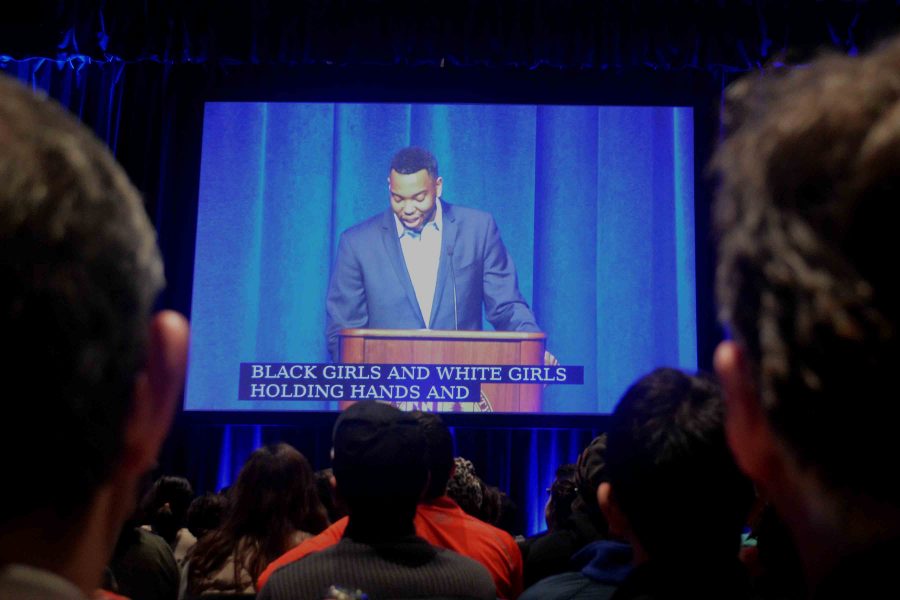Ta-Nehisi Coates drew the largest crowd in the 22-year history of the Martin Luther King, Jr. Convocation at Loyola.
The crowd was so large, in fact, that the event had to be moved from McGuire Hall to Reitz Arena.
Coates, a senior editor for The Atlantic, published an article in June titled “The Case for Reparations.” Reparations, according to Coates, are the repaying of what whites have taken from blacks over the course of history in this country. The article focuses on a man named Clyde Ross and the obstacles and oppression he faced in trying to buy a house in West Chicago.
Coates opened the lecture by recounting his childhood in nearby West Baltimore and how he was obsessed with planning the safest route to and from school. He spoke of having a television set in his living room and seeing boys his age on TV who did not have to face the same obstacles. He recalled wondering, “What divided me from the world I saw on TV?” The answer, he discovered, was the color of his skin.
Coates went on to discuss the large wealth gap between whites and blacks and in the United States today. He said the left calls it a “disproportionate amount of poverty” and the right blames a “culture deficiency.” But both of these claims left Coates asking “How did it get this way?” and “What could be done to change it?”
Many people, Coates said, narrow in on the quotes of Martin Luther King, Jr. that essentially convey that “impoliteness” might be the issue, that perhaps if whites and blacks were just nicer to each other, the problem would be solved. But this fundamentally misunderstands the problem, according to Coates, which can be traced back to 1619 when Africans were first brought to the United States to be enslaved.
Coates said that since that time, it has been ingrained in white Americans to “plunder” blacks and to take from blacks to further advantage whites. According to Coates, whites have a history of taking away or depriving blacks of rights and material goods from the moment Africans arrived on American soil.
“Plunder of black people is our heritage, it’s our tradition,” said Coates.
But Coates believes, as a nation, we tend to ignore and “forget” this part of our history. He said that we have a national case of amnesia, and that as a country we tend to instead believe that blacks, as a people, got to this place in society through some inexplicable cause.
Reparations, or the giving of what is owed, are the solution according to Coates. He does not believe he will see it happen in his lifetime, or even his children’s lifetimes, but he believes it is his duty to speak about what he believes is correct, and to both start and continue the conversation of solving racial injustice in our country.
His argument was summed up by a simple statement near the end of the lecture: “If you have been plundering a people for 350 years,” he said, “Maybe you should give some of that back.”











































































































